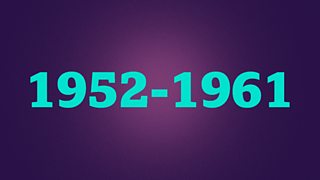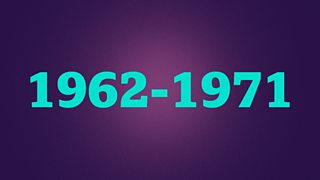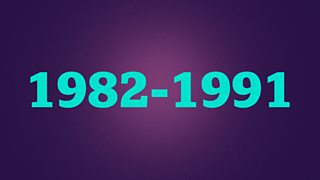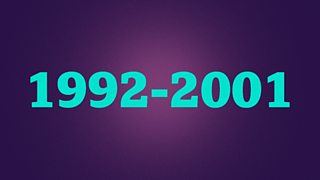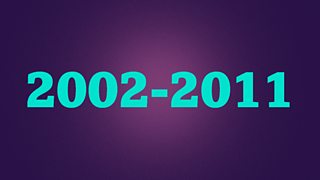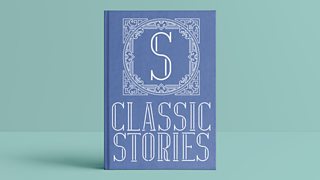The Big Jubilee Read - 1972-1981
17 April 2022
Throughout this year of Platinum Jubilee celebrations, the 大象传媒 and The Reading Agency are celebrating 70 great books from across the Commonwealth. Read on to discover more about The Big Jubilee Read selections drawn from 1972 to 1981.
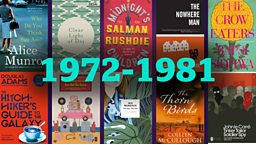
A celebration of literature from around the Commonwealth
An Indian family move from the countryside to the bustling city of Lahore, a retired spy is recruited to hunt down a mole in the British Secret Service and the Earth is demolished to make way for a hyperspace bypass in these books published between 1972 and 1981.
The Reading Agency
-
![]()
The Big Jubilee Read is a partnership between the 大象传媒 and the Reading Agency.
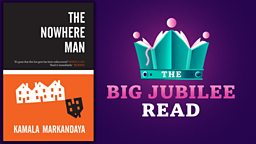
The Nowhere Man
by Kamala Markandaya (1972, India)
Srinivas, an elderly Brahmin, has been living in a south London suburb for thirty years. After the deaths of his son and his wife, this lonely man is befriended by an Englishwoman in her sixties, whom he takes into his home. The two form a deep and abiding relationship. However, the haven they create for themselves proves to be a fragile one. Racist violence enters their world and Srinivas's life changes irrevocably - as does his dream of England as a country of tolerance and equality.
The Nowhere Man depicts a London convulsed by fear and bitterness. Truly shocking, Markandaya’s novel is as relevant today as when it was first published fifty years ago.


Tinker Tailor Soldier Spy
by John Le Carré (1974, England)
A mole, implanted by Moscow Centre, has infiltrated the highest ranks of the British Intelligence Service, almost destroying it in the process. Former spymaster George Smiley has been brought out of retirement in order to hunt down the traitor at the very heart of the Circus - even though it may be one of those closest to him.
The first part of le Carré's acclaimed Karla Trilogy, Tinker Tailor Soldier Spy sees the beginning of the stealthy Cold War cat-and-mouse game between the taciturn, dogged Smiley and his wily Soviet counterpart.
- John le Carré: A Writer and His Country (大象传媒 Radio 4)


The Thorn Birds
by Colleen McCullough (1977, Australia)
In the rugged Australian Outback, three generations of the Cleary family live through joy and sadness, bitter defeat and magnificent triumph – driven by their dreams, sustained by remarkable strength of character and torn by dark passions, violence and a scandalous family legacy of forbidden love. At the heart of the story is the Clearys’ only daughter, Meggie, who can never possess the man she desperately adores.
McCullough’s novel is a timeless epic romance, and a battle between faith and the heart.

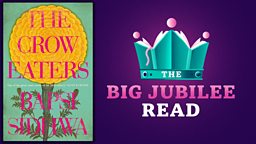
The Crow Eaters
by Bapsi Sidhwa (1978, Pakistan)
Seeking fortune and opportunity, Faredoon 'Freddy' Junglewalla and his family – his pregnant wife, infant daughter, and burdensome mother-in-law – move from their ancestral village in rural India to the bustling metropolis of Lahore. Welcomed by the small but tight-knit Parsi community, Freddy soon establishes a booming business and his family becomes revered and respected. But when tragedy forces Freddy to rethink his legacy, intimations of historic change loom on the country's horizon.
Wickedly funny and searingly honest, The Crow Eaters is a vibrant portrait of a Parsi family taking its place in colonial India on the brink of the 20th century.
- Free Thinking: Anne McElvoy speaks to Pakistani author Bapsi Sidhwa about her novel The Crow Eaters (大象传媒 Radio 3)


Who Do You think You Are?
By Alice Munro (1978, Canada)
Born into the back streets of a small Canadian town, Rose battles incessantly with her practical and shrewd stepmother, Flo, who cowes her with tales of her own past and warnings of the dangerous world outside. But Rose is ambitious - she wins a scholarship, leaves for Toronto marries Patrick, and becomes his Beggar Maid, 'meek and voluptuous, with her shy white feet'.
Booker Prize winner Munro's wonderful collection of stories reads like a novel, following Rose's life as she moves away from her impoverished roots and forges her own path in the world.
- Alice Munro: Too Much Happiness - A short story read by Barbara Barnes (大象传媒 Radio 4)


The Sea, The Sea
by Iris Murdoch (1978, England)
When Charles Arrowby retires from his glittering career in the London theatre, he buys a remote house on the rocks by the sea. He hopes to escape from his tumultuous love affairs but unexpectedly bumps into his childhood sweetheart and sets his heart on destroying her marriage. His retreat is further disturbed when his friends all decide to come and keep him company.
A book that is as absurd as it is brilliant, from a writer who still divides opinion.
- Open Book: Iris Murdoch special (大象传媒 Radio 4)


The Hitchhiker's Guide to the Galaxy
by Douglas Adams (1979, England)
It's an ordinary Thursday lunchtime for Arthur Dent, until his house gets demolished, and the Earth is destroyed to make way for a new hyperspace express route. Fortunately, Arthur’s best friend has just announced that he's an alien. Before he knows it, the pair are hurtling through space with nothing but their towels and an innocuous-looking book inscribed, in large friendly letters, with the words: DON'T PANIC.
The Hitchhiker’s Guide to the Galaxy is an international phenomenon and pop-culture classic, which has manifested as a radio show, a TV series, a series of novels, a stage play, a comic book and a film. Fans are quick to point out that none of these formats have rendered Vogon poetry worth listening to.
- 大象传媒 Archive: Celebrate The Hitchhiker's Guide

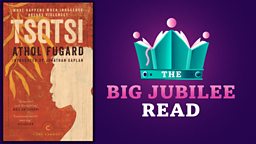
Tsotsi
Athol Fugard (1980, South Africa)
Tsotsi is an angry young gang leader in the South African township of Sophiatown. A man without a past, he exists only to kill and steal. But when he captures a woman one night in a moonlit grove of bluegum trees, she shoves a shoebox into his arms: the box contains a baby and his life is inexorably changed.
South African playwright Fugard abandoned the manuscript of his only novel in the early 1960s. It was rediscovered in a suitcase and published in 1980.
- Spotlight: Athol Fugard - The South-African playwright on the freedom of writing for the radio (大象传媒 Radio 4)


Clear Light of Day
by Anita Desai (1980, India)
The Das family have grown apart. When Tara returns to her shabby, dusty house in Delhi, her visit brings a sharp reminder of life outside tradition. For her sister Bimla, a disillusioned art teacher, old jealousies are renewed as she remembers how she failed to escape the family home.
Exploring both the cruelty and the beauty of family life, and the harshness of India's modern history, Clear Light of Day evokes the painful process of confronting and healing old wounds.
- A Good Read - Writer Kamila Shamsie talks about Clear Light of Day (大象传媒 Radio 4)

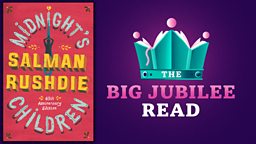
Midnight’s Children
by Salman Rushdie (1981, England/India)
Born at the stroke of midnight at the exact moment of India's independence, Saleem Sinai is a special child. However, this coincidence of birth has consequences he is not prepared for: telepathic powers connect him with 1,000 other 'midnight's children' all of whom are endowed with unusual gifts.
Awarded the Booker of Bookers in 1993, and the , Rushdie’s novel is a whirlwind of disasters and triumphs that mirrors the course of modern India at its most impossible and glorious.

More from The Big Jubilee Read
-
![]()
1951-1961
An ex-RAF pilot confronts racism in the classroom, a young girl is caught up in the partition of India, and an alcoholic goes in search of his dead palm-wine tapster.
-
![]()
1962-1971
A Nigerian priest believes he has been chosen by his god, an Englishman and a South African join forces to modernise their community and a group of Australian schoolgirls vanish without trace.
-
![]()
1992-1991
A woman is forced to serve as a Handmaid in a dystopian future society, a German industrialist saves hundreds of Jews from death in Auschwitz and a Maori artist meets a mute six-year-old with a haunting past.
-
![]()
1992-2001
Two Second World War veterans try and rebuild a life in London, two twins grow up among political turmoil in Kerala and a young boy is stranded at sea with a ferocious Bengal tiger.
-
![]()
2002-2011
A commoner causes turmoil in the court of King Henry VIII, a London waterman is transported to New South Wales, and a Pakistani woman tries to create a day to remember.
-
![]()
2012-2021
A South African family gather for their mother's funeral, a young boy in Singapore sets out to discover what happened to his grandmother during the Japanese invasion and a ghost story unfolds on the goldfields of New Zealand.

Discover more about brilliant books across the 大象传媒
-
![]()
Between the Covers
Sara Cox hosts the irreverent, entertaining TV show where books spark the banter
-
![]()
Turn Up For The Books
Surprising and friendly book recommendations from Dan Smith, Irenosen Okojie and Simon Savidge in this 大象传媒 Sounds podcast
-
![]()
Classic novels
Listen in full to a selection of classic novels on 大象传媒 Sounds, including Frankenstein, Animal Farm and Jane Eyre
-
![]()
Open Book
The Radio 4 programme looking at new fiction and non-fiction books, talking to authors and publishers and unearthing lost classics

